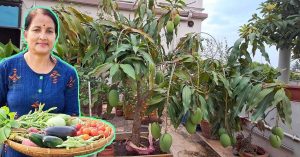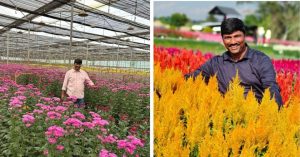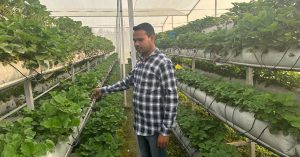Kerala Couple Quits Jobs to Grow 7 Traditional Rice Varieties, Harvest 15 Tonnes/Year
Pavithra and Rinas from Kerala quit their high-paying jobs in Mumbai to pursue organic farming. They now cultivate several traditional rice varieties and harvest around 15 tonnes of paddy annually.
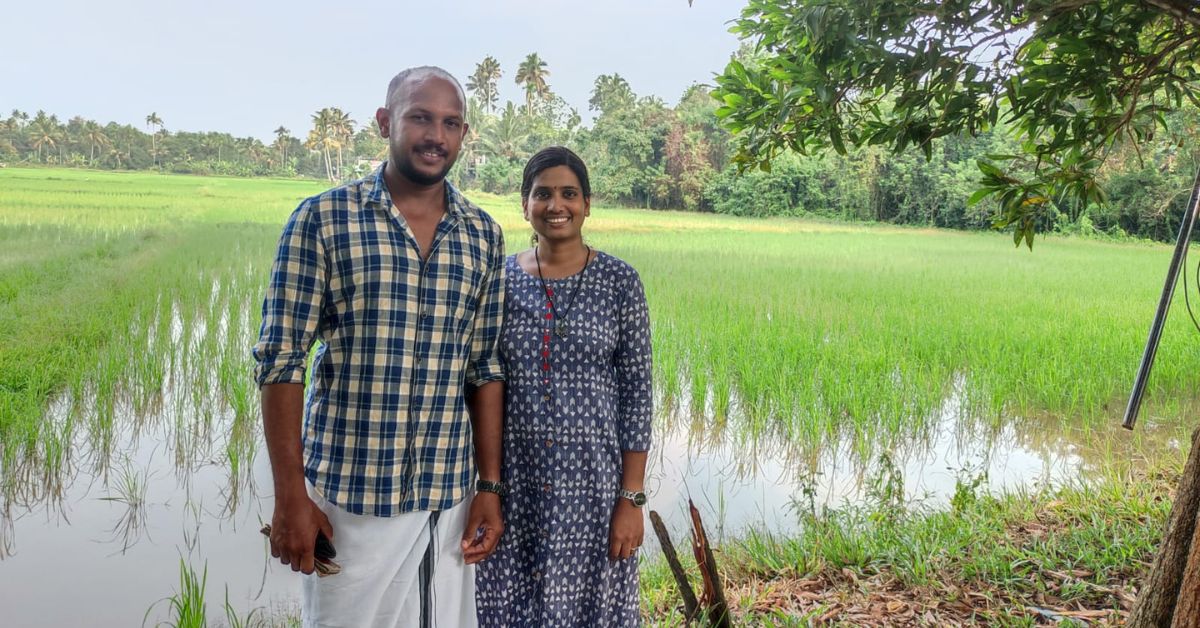
While living in Mumbai, Pavithra A and her husband Mohammed Rinas from Kerala never enjoyed the fast-paced city life. They missed being with nature and having access to clean and healthy food. The couple longed to go back home and were always looking for the right opportunity.
That’s when Pavithra came to know about a project by the Salim Ali Foundation in Kerala. She grabbed the opportunity to move back home. Thus in 2016, she left her HR generalist job at a multinational company to join as a project coordinator for the foundation.
Within a year, Rinas quit his job as a mechanical engineer in the oil and gas industry to join his wife.
The couple worked for the foundation’s project in Vellangallur panchayat in Thrissur, Kerala. It was their flagship project to promote conscious and self-sustaining development in the region.
After working on the project for some time, the couple was motivated to take up organic farming. Soon, they leased around 15 acres of barren land in Vellangallur and turned it into an organic farm cultivating traditional rice varieties.
Today, they have expanded their cultivation to 20 acres and are growing around 15 tonnes of paddy on average annually. They also sell value-added rice products like puttu (logs of rice flour steamed with coconut) powder, flattened rice, etc.
Their journey from the corporate world to the social sector, and eventually taking up organic farming did not happen overnight!
A mission to promote clean food
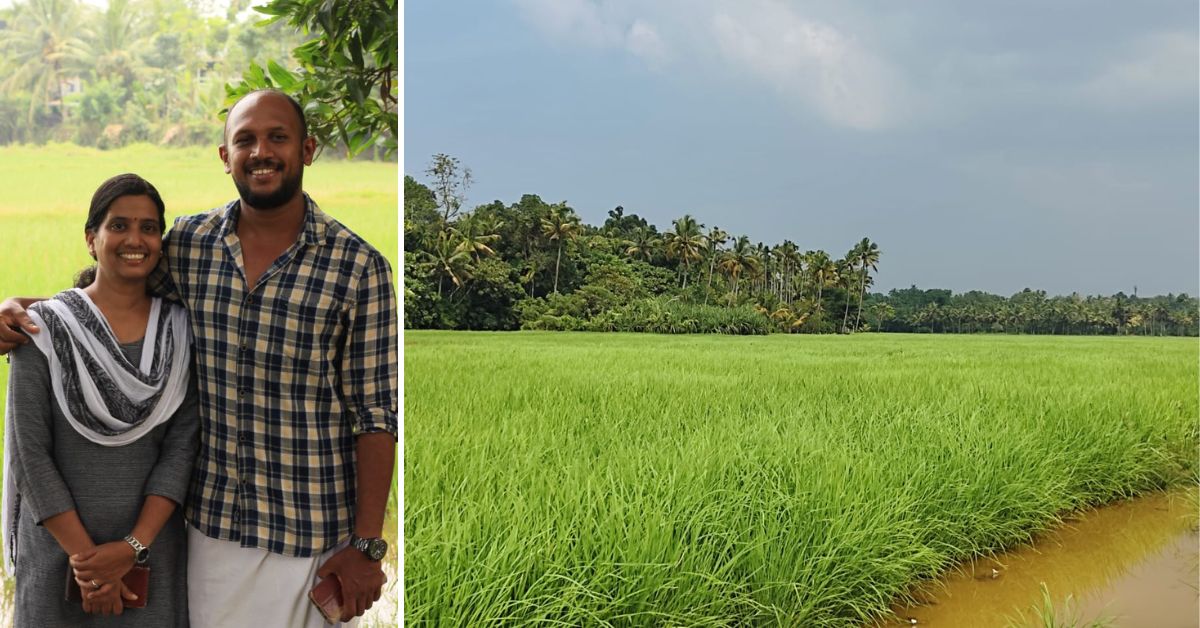
Their income was reduced while working for the foundation. Pavithra earned a small salary whereas Rinas mostly worked for free. But they say they were the happiest when they stepped into social work.
“The shift wasn’t easy, but I don’t have any regrets,” Pavithra tells The Better India. “I hated working in air-conditioned offices, and I am now happy that I get to work on the field, that too for a social cause,” she says.
According to them, this experience opened a whole new way in front of them that eventually inspired them to take up agriculture.
“As part of the project, we worked together to create awareness about organic farming among farmers. Besides, Rinas helped the farmers with the technological and machinery-related aspects like setting up drip irrigation systems, aquaponics, etc,” explains Pavithra.
Working on the project itself was a learning experience for the couple who realised the importance of growing clean food.
“While working in Mumbai, I used to read about farming over the internet. But I really got interested in it only after working on the project. Pavithra also shared the same interest. So, we both decided to take up paddy cultivation as we Keralites consume a lot of rice, and therefore it is essential to cultivate it organically, “ explains Rinas.
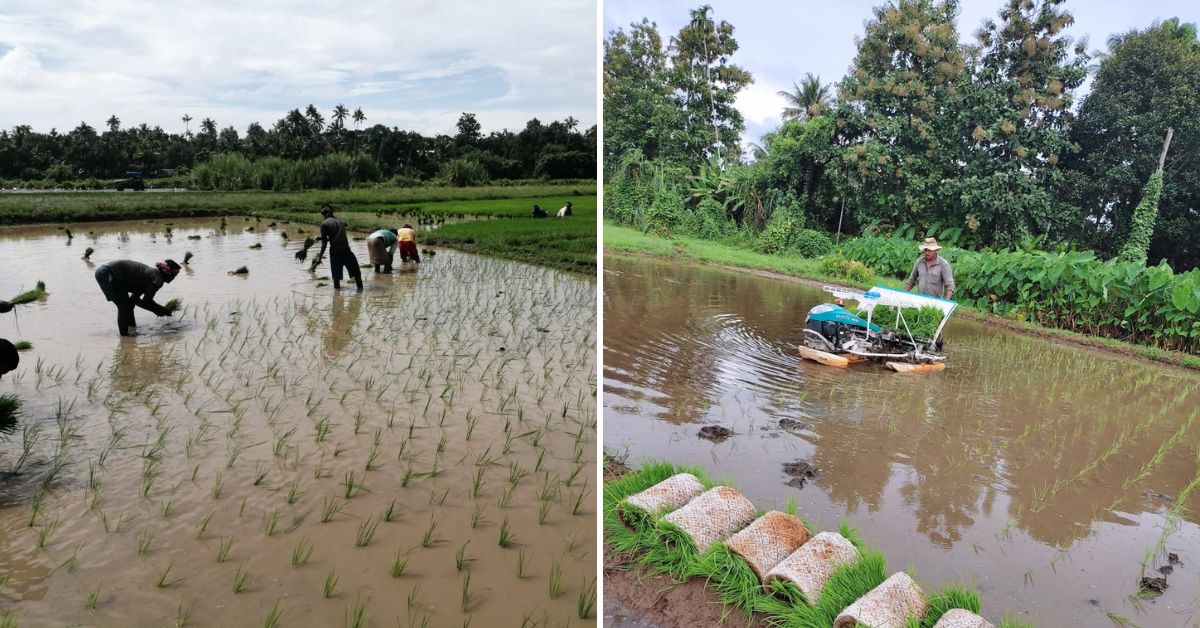
But it was easier said than done. Even though they decided to start farming on 15 acres of land, Pavithra says, “We didn’t have enough money to kick start it. So, we had to pawn some jewellery from Rinas’s mother, and that’s how we started our farming journey.”
The land was barren and was left unused for several years. It was the first challenge they faced while starting out farming.
“Both of us didn’t have prior experience in farming and we figured it out eventually. But organic cultivation of traditional rice is more challenging than inorganic methods as it requires more manpower. Therefore cost-efficiency is a challenge,” adds Rinas.
Another challenge they faced is finding a market space for organic produce. He adds, “We can’t sell organic produce as easily as the inorganic produce, because there isn’t enough market space for our products.”
Promoting traditional rice varieties
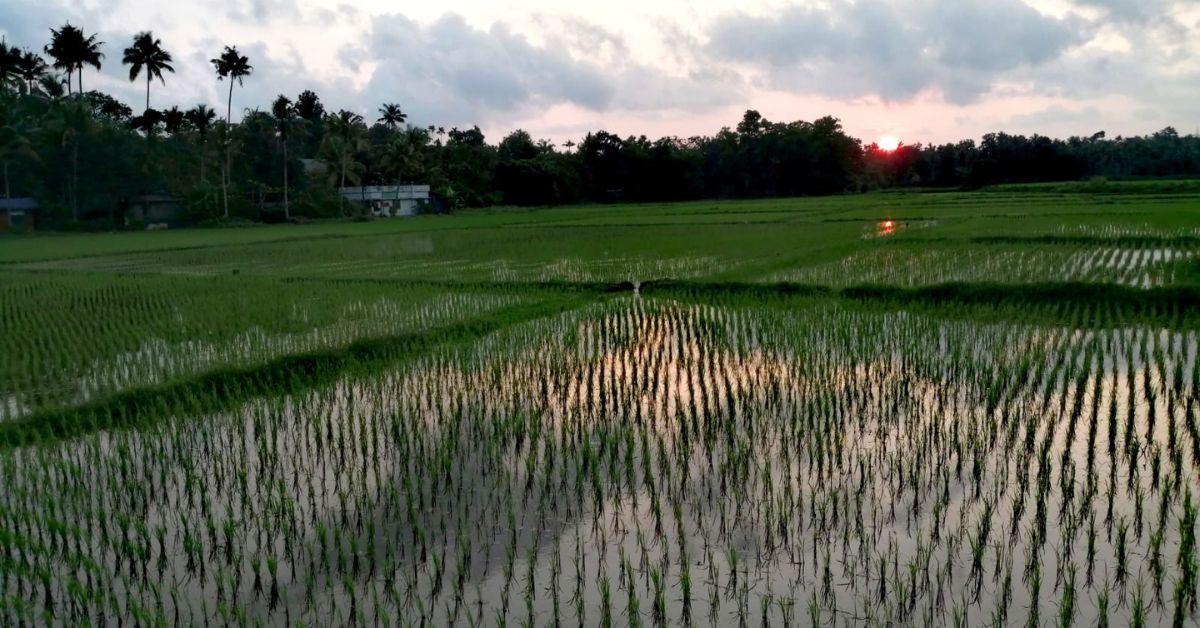
The couple focused on traditional rice varieties because they believed that it’s more sustainable and nutritious than the hybrid ones. “We also felt that it is essential to bring nutritious and clean food into the market,” says Pavithra.
Rakthashali, Kuruva, Thavalakannan, Kunju Kunju red rice, Njavara, Kodukanni and Pattambi are some of the traditional rice varieties they have cultivated so far. “Among all the varieties Kuruva and Kodukanni have been the most yielding,” says Rinas.
He adds, “The Rakthashali rice is a traditional variety with several medicinal properties and has a huge demand in the market. But its yield is less when compared to other varieties. When other varieties yield around 1,200 kg on an average, Rakthashali yields around 700–800 kg per acre.”
According to him, “On average, we could cultivate around 15 tonnes of paddy from 20 acres.”
Though they were able to cultivate around 1,500 kg per acre in the first harvest in 2018, the following years were a bit challenging. “Due to floods, cyclone Ockhi, and the pandemic-induced restrictions, it was very difficult for us to find a pace. But this year we are hopeful as it has been going smoothly,” says Pavithra reminding us that it’s still unpredictable due to the drastic change in the climate.
Pavithra and Rinas not only grow rice, but also make several rice-based value-added products such as flattened rice, rice powder, and puttu powder.
“We sell Kuruva rice for Rs 90 per kg and its rice powder and puttu powder for Rs 140 per kg. We also make the same products out of other rice varieties like Rakthashali, on request,” says Rinas, adding that they promote their products through social media.
For more information and enquiries, you can contact them at +91 95446 77707
Edited by Pranita Bhat; Photo credits: Pavithra A
If you found our stories insightful, informative, or even just enjoyable, we invite you to consider making a voluntary payment to support the work we do at The Better India. Your contribution helps us continue producing quality content that educates, inspires, and drives positive change. Choose one of the payment options below for your contribution- By paying for the stories you value, you directly contribute to sustaining our efforts focused on making a difference in the world. Together, let’s ensure that impactful stories continue to be told and shared, enriching lives and communities alike. Thank you for your support. Here are some frequently asked questions you might find helpful to know why you are contributing?

This story made me
-
97
-
121
-
89
-
167




